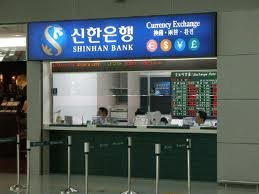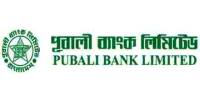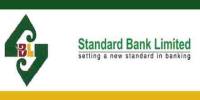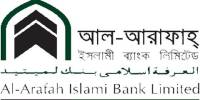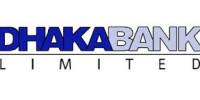Introduction
General banking is the starting point of all the banking operations. It is the department, which provides day-to-day services to the customers. Everyday it receives deposits from the customers and meets their demand for cash by honoring cheques. It opens new accounts, remit funds, issues bank drafts and pay orders etc. Since bank is confined to provide the services everyday, general banking is also known as ‘retail banking’.
According to World Bank, the general people understand the depositing and withdrawal of money and credit financing. But Bank performs numerous types of services. To deal these services bank has to maintain many register/ ledger and documents. Some different jobs that waive the General banking has shown in the following diagram
Token Issue
The token issue department uses a register book and different types of tokens decorated with different letters for different types of accounts. There are two types of tokens. One is for savings A/C and another is current / other accounts.
Procedure
The client will encash money from his account will show his cheque to the respective officer of the desk. The officer will give him a token with particular number after being sure of his two signatures on the back of the cheque. The officer will give him a token with a particular number on the back of the cheque. The client will then proceed on for encashment. The officer then gives an entry about the token number, account name and the amount in the column of the register book.
The token will be checked by the responsible officer for maintaining at the end of each business day. Tokens are then handed over to the supervising official concern to keep them in a locked box. Tokens are checked once a month by the supervising officer in charge wheather tokens is ok or not. When a token is lost it is informed to the head office for a matter of precaution.
Maintenance of the subsidiary register for receipt of cheques, drafts :
At the counter every cheque, demand draft and other credit instrument tender for the credit of the customers account will be delivered. Deposits received by post will sent by the receiving officer to the bills department against acknowledgment of the dealing officer. The dealing officer is concerned here about four types entries. They are
- Local Clearing
- IBC (Inter Branch Collection )
- SC (Short Collection )
- BT (Bank Transfer)
In case of local clearing one bank sends money by cheque or DD which will be collected in the name of the account holder of this branch. This cheque or DD will be taken to the clearing house where agents of all banks exchange these instruments. Important thing is that the paying Bank must be in the local area (Dhaka). In case of IBC the branches must be of the same banks for short collection, the paying banker is in the area other than Dhaka whereas bank transfer will be between two accounts of the same branch.
The dealing officer of this desk should be aware of the following things about instruments:
Name of the account is very clearly written on the deposit slip.
Full particulars of the deposit instruments such as cheque numbers, name of bank, etc are properly recorded on the paying slip as required.
The pay in slip has been signed by the depositor.
Full particulars of the railway receipts and instruments of title goods, bills of exchange, invoice etc. associated with an inland documentary bill received from the depositors direct at the counter or by post from other branches/ banks endorsement thereon.
All cheques, bills and other instruments are crossed with crossing seal .
After categorizing all the instruments and checked out the preliminary mandatory things, the dealing officer gives entries in the appropriate column of subsidiary ledger for crediting the accounts.
Account Opening Section
When a customer want to open a deposit account in bank, he/she will have to go the A/C opening section to know the rules and regulations for opening account and to have the set of documents required. Since PBL is an authorized dealer it can open deposit A/Cs denominated both in Taka and approved foreign currencies.
Deposits are like raw materials out of which credits are created. Deposit accounts are one of the important sources of funds. In order to attract customers the banks offer different facilities to various types of account holders. Competition in accepting deposits takes two forms:
(a) Improvement in customer service
(b) Offer a higher rate of interest.
In our country PCBs and foreign banks are appreciated to attract deposit because of their superior customer services. PBL principal office branch with its traditions customer service approaches faces difficulties to draw attention of new customers.
Main functions of account opening are given below:
- To give answers to the queries regarding account opening
- To supply the appropriate type of account opening form
- To put a/c number from a computerized sheet on advice of new account
- To input date into computer from a/c opening form.
- To maintain and update the a/c opening file for different types of accounts.
- To maintain a register for cash type of recording details of a/c opening
- To supply deposit slip books and cheque book on requisition
- To act on request for closing and transferring of deposit a/c
- To act on request for closing and transferring of deposit a/c
Classification of Customer
a) Individual (personal)
b) Proprietorship (Sole traders)
c) Partnership firms (Register or Unregistered)
d) Joint Stock Companies ( Private Limited and Public Limited )
e) Municipalities/Municipal Corporations/Local Bodies etc.
f) Clubs / Societies / Associations /School / Colleges / Universities etc.
g) Executors /Administrators
h) Trustees
i) Illiterate persons
j) Constituted Attorney
k) Wage Earners
Different types of A/C of PBL Principal Office
- Current A/C : Interest free and generously withdraw able.
- Saving Bank A/C: Interest bearing and checkable with some restriction
- Short Term deposit: Usually interest bearing and with draw able on short notice.
- Fixed deposit: Interest bearing and definite period like one year or six month.
- Non Resident foreign currency deposit: All non residents of Bangladesh can open this interest bearing account in the form of term deposit with a minimum amount of $1000 or equivalent.
- Private Foreign Currency A/C: Bangladeshi National residing abroad or foreign nationals may open this a/c with deposit mode from inward.
- Convertible Take Amount: A type of non-interest bearing current a/c designed specially for foreigners living here.
- Private foreign Currency A/C: Bangladeshi nationals residing abroad or foreign nationals may open this a/c with deposit mode from inward.
Documents required for opening new account
- Documents Common for all types of Account & Customers
- Advise of New Account
- Specimen signature cards
- Account Opening Agreement Form
- Photographs of Account Holder
- Deposit Slips Book
- Cheque book Requisition slips
- Letter of mandate is required where necessary.
Account opening procedure
- Applying in a printed application in a certain stipulated form printed by the bank itself.
- Supply a set of printed forms required for opening the account which will normally include
i) Advise of new Account
ii) Specimen Signature Cards
iii) Account Agreement
iv) Deposit slip Book
v) Cheque Book Requisition slip
- The account should properly introduced by any one of the following
i) An existing Current Account holder of the bank
ii) Officials of the Bank not below the rank of an Assistant officer
iii) A respectable person of the locality well known to the Manager or Sub- Manger of the Branch concerned.
- A number of photographs which must be duly attested by the introducer in front of the manager or responsible officer. The signature of the introducer must be attested. After being scrutinize the application and the manager or authorized officer may give his consent to open the account.
- A package with deposit book, cheque book with a unique A/C No. given to the Customer maintaining the A/C opening register book.
Precautionary Measures of A/C Opening:
- Soon after the opening of a new Account a letter of Thanks should be sent to the introducer.
- A letter of thanks as per prescribed should also be sent to the account holder immediately upon opening the account, under registered post with a/c for verification of postal address as well as genuineness of the Account holder.
- In case of a new account is opened a proprietorship / partnership firm, having local business address, a responsible officer of the branch will inform the firm to obtain the confidential report on the firm.
Formalities for opening Current A/C and STD A/C:
These accounts are meant for business firms and corporate bodies. Initial deposit requirement is Tk 5000 in addition to common documents required to open a saving a/c following additional documents will be required for depending upon the nature of the organization.
Joint Account of two or more persons
Mandate for Operation of Account: A clear authority by all the joint A/C holders containing instructions as to who will operate the account and how the account is to be operated should be obtained. The mandate should mention the name of the persons authorized to draw check. In case of death, insanity, insolvency of one or more of the joint a/c holders, the authority will cease to operate:
For sole traders:
i) Trade license
ii) A certificate with tax identification number from income tax authority
iii) Seal
iv) In case of current account an agreement to accept all responsibilities for all over draws, interest cost and expenditures
For Partnership firms:
i) Trade license
ii) Notarized deed of partnership
iii) A mended in agreement form regarding operation of the account signed by the entire partnership firm
iv) Sale/ Stump of the firms
v) 2 copy photo of all partners
For Private and Public Limited Companies
i) Memorandum and Articles of association
ii) Certificate of incorporation
iii) Certificate of commencement of business if it’s Public limited
iv) Copy of board resolution to open a/c certificate by the chairman and secretary
v) Power of attorney to operate a/c in favor of any one or more of directors.
vi) Balance sheet and income statement
vii) List of Directors and their address and chairman certificate.
Formalities for opening Private foreign currency A/C
Foreign Currency account may be opened in US dollar, Pound Sterling, Douche Mark and Japanese Yen. Credit may be made to this A/C against inward remittance from abroad. Usually this a/c operated like a current a/c but no checkbook are issued against his a/c. Withdrawals may be made through withdrawals slips. Interest may be paid on this a/c if it is maintained in the form of term deposit for a minimum of 90 Day’s Bangladeshis’ living abroad can open even without initial deposit. A nominee can be appointed.
Documents required: When an eligible person is interested to open an F/C account his passport is to be checked and signature verified. When he is staying abroad his signature is to be verified and attested by –
i) Bangladeshi embassy on that country
ii) His banker in this country
iii) Notary public of that country
Following documents are needed to:
i) Photocopy of 1st 4 pages of passport
ii) Photocopy of visa and work permit
iii) Nominees photo and account no.
iv) Declaration of source of income
Issue of Duplicate cheque book
Duplicate cheque book in lieu of lost one should be issued only when A/C holder personally approaches the bank with an application. Fresh Cheque Book in lieu of lost one should be issued after verification of the signature of the Account holder from the Specimen signature card and on realization of required excise duty only with prior approval of manager of the branch. Cheque series number of the new cheque book should be recorded in ledger card signature card as usual. Series number of lost cheque book should be recorded in the stop payment register and caution should be exercised to guard against fraudulent payment.
Closing of Account
Upon the request a customer an account can be closed. After received an application from the customer to close an Account, the following procedure are followed by a Banker.
The customer should be asked to draw the final cheque for amount standing to the credit of his a/c by deducting the amount of closing and other incidental charges.
In case of joint a/c the application for closing the a/c should be signed by all the joint holder.
Interest rate on deposit
Interest rate different types of deposit as prescribed by PBL head office from time to time irrespective of size of deposit
Type of Deposits | Interest rates |
| a. Saving deposit | 8.00% |
| b. Special notice deposit | 6.50% |
| c. Fixed Deposit | |
| 3 Months | 7.50% |
| 6 months | 8.00% |
| 1year | 8.5% |
| 2 or 3 year | 9.% |
Clearing Section
The Cheque Clearing Section of PBL principal office branch sends Inter Branch Debit Advice (IBDA) to the Head office on the receiving day of the instruments. The main Branch takes those instruments to the Clearing House on the following day. If the instrument is dishonored, Head office of PBL, sends IBDA to the PBL, Principal Office branch. The total procedure takes three days if everything goes orderly.
The Cheque Clearing Section of PBL, Principal Office branch sends Outward Bills for Collection (OBC) to the concerned Paying Bank to get Inter Branch Credit Advice (IBCA) from the paying Bank. If the instruments are dishonored by the Paying Bank, the Paying Bank returns it to the PBL, Local Officer Branch describing why the instruments are dishonored. The procedure takes around a week.
The Cheque Clearing Section of PBL, Principal office branch sends Outward Bills for Collection (OBC) to the concerned paying Branch to get Inter Branch Credit Advice (IBCA) from the paying returns it to the PBL, Local Office branch describing why the instrument is dishonored.
Local Remittance Section
Local Remittance is used to transfer of funds denominated in Bangladesh Taka between banks within the country. It is an order from the Issuing branch to the Drawee Bank/ Branch for payment of a certain sum of money to the beneficiary. The payment instruction is sent by Telex / Telegram and funds are paid to the beneficiary through his account maintained with the Drawee branch or through a pay order if no a/c is maintained with the drawee branch. The cash department does remittance of cash. Instruments of local remittances at PBL branches are follows
Local Remittance
Telegraphic transfer TT | Demand Draft DD | Pay Order | |||
Pay Order
Pay order issue process
For issuing a pay order the client is to submit an Application to the Remittance Department in the prescribed form (in triplicate) properly filled up and duly signed by application. The processing of the pay order Application form, despot of cash/cheque at the Teller’s country and finally issuing a order etc, are similar to those of processing of L.D Application.
As in case of L.D each branch should use a running control serial number of their own for issuance of a pay order. This control serial number should be introduced at the beginning of each year which will continue till the end of the year. A fresh number should be introduced at the beginning of the next calendar year and so on.
Charges
For issuing each pay Order commission at the rate prescribed by Head Office is realized from the client and credited to Income A/c as usual.
Entries
Dr. Teller’s Cash/client’s a/c
Cr pays Order a/c
Cr commission a/c
P.O issue Register
The remittance Department will issue the pay Order’s duly crossed “A/c payee” and will enter the particulars of the P.O Issued in the prescribed P.O Register duly authenticated.
Payment of pay orders
As the P. Os crossed A/c payee, the same are presented to the Issuing branch for payment either through clearing of for credit to the client’s A/c. Os when presented for payment are processed in the Remittance Department. On making payment, the relative entry in the P.O Register is marked of by entering the date of payment in the P.O Register duly authenticated. The paid instrument is treated as Debit Ticket.
Refund of Pay Order
The following procedure should be followed for refund of pay order by cancellation
- The purchase should submit a written request for refund of pay order by cancellation attaching therewith the original pay order
- The signature of the purchaser will have to be verified from the original application form on record.
- Manager/Sub-manager’s prior permission is to be obtained before refunding the amount of pay order cancellation.
- Prescribed cancellation charge is to be recovered from the application and only the amount of the pay order less cancellation charge should be refunded.
- The pay order should be affixed with a stamps “ cancelled” under should also be canceled with RED ink but in no case should be torn. The canceled pay order should be kept with the relevant Ticket.
- The original entries are to be reversed with proper narrations.
- Cancellation of the pay Order should also be recorded in the pay order Issue register #Issue and payment of Pay-order:
Strictly speaking pay-order is not meant for remittance. Because it is payable by the issuing branch. A order is issued to facilitate fund transfer within a clearing area.
Dr. tellers cash/Client A/c
Cr. Manages cheque
Cr. Commission
Up to Tk.1000 Tk. 10
Tk.1001-100000 Tk. 25
Tk.100, 001-500000 Tk. 50
Above Tk.500000 Tk. 100
When paying against pay-order following entries are passed
Dr. Manager’s cheque
Cr Cash/Client A/c
